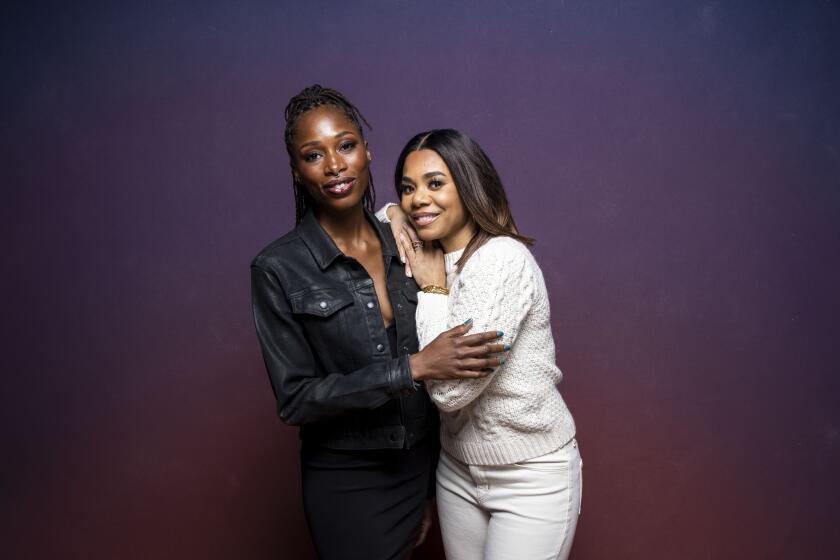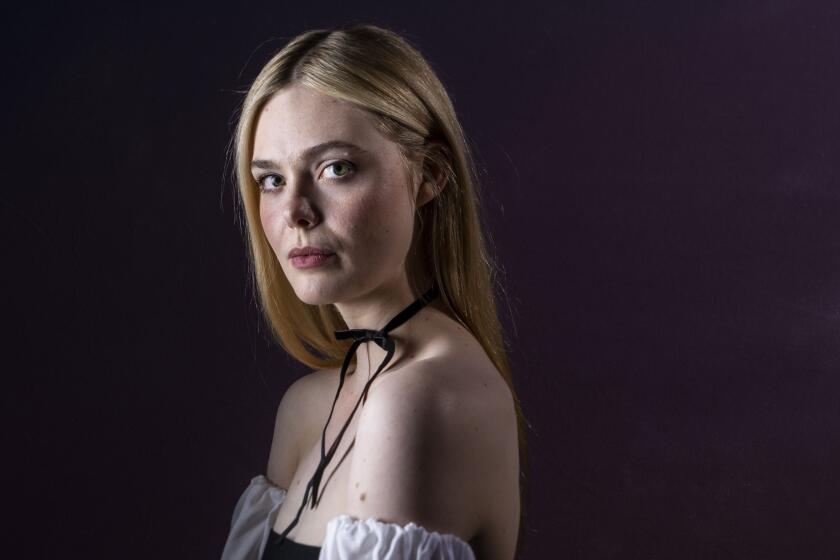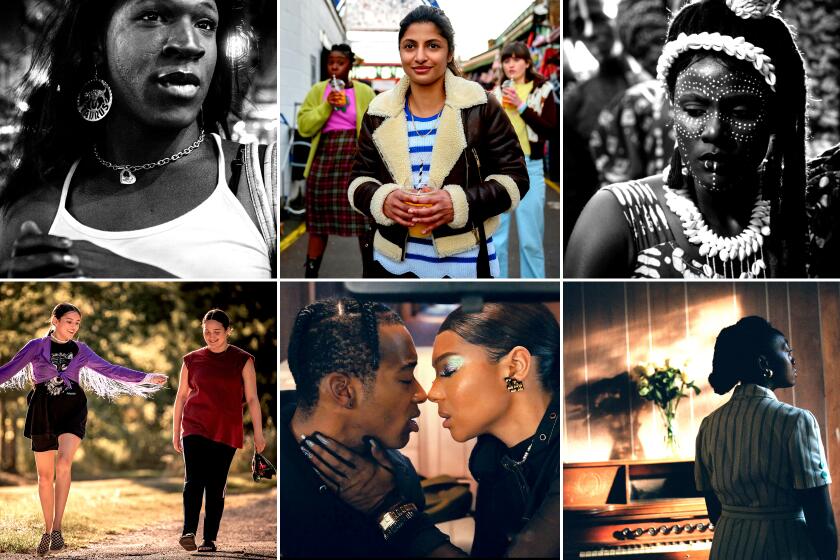Why Ruth Negga and Tessa Thompson were willing to drop everything for ‘Passing’

Four years ago British actress Rebecca Hall gave Ruth Negga the script she’d adapted from Nella Larsen’s 1929 novel “Passing,” a passion project about race, privilege, desire, repression and the American Dream that would mark Hall’s directorial debut. It featured two Black female characters the likes of whom cinema had rarely centered in film: Irene, a comfortably bourgeois Harlem housewife, and Clare, the childhood friend she’s shocked to learn is now passing as white.
“I had read this book and was completely astounded by it, and I couldn’t believe it wasn’t more popular and wasn’t in the canon of American literature,” said Negga, who gravitated toward the role of the beguiling and effervescent Clare, during an L.A. Times Talks @ Sundance virtual panel, sponsored by Chase Sapphire. “And I thought, ‘Sign me up. When you get it made, when you get backers, I’ll drop everything and I’m there.’”
Tessa Thompson also was willing to clear her schedule to play Irene, whose curiosity for Clare spins into a maelstrom of emotions as the women’s lives become ever more dangerously entangled in the 1920s New York-set drama. “In fact, I did drop something that I was supposed to do!” she said ahead of the film’s Sundance premiere, tuning in virtually from Australia, where she is filming the latest “Thor” installment for Marvel. “I just burned for it. I found both the source material and what Rebecca did with the script to be so incredibly haunting.”
In spite of her acclaimed acting career, Hall didn’t have an easy time getting her first film off the ground. Producer Nina Yang Bongiovi and Significant Productions partner Forest Whitaker, who had helped launch the first films of directors including Ryan Coogler, Boots Riley and Chloé Zhao, came aboard after learning why Hall connected so strongly to the story.
Actresses Tessa Thompson and Ruth Negga collaborate with Rebecca Hall on her adaptation of Nella Larsen’s acclaimed novella ‘Passing.’
“There is a history of white-passing in my family, of African American white-passing,” said Hall, whose mother, American opera singer Maria Ewing, is biracial, and whose father, British theater icon Peter Hall, was white. “My whole life this was sort of known and not known, talked about and not talked about. There wasn’t really language for passing.” Larsen’s novel offered “a context and a historical understanding for what must have happened in my family,” Hall said.
Upon reading it more than a decade ago, Hall wrote the first draft of her script in 10 days, whittling it into a precise and economical vision over the years. The film, shot in Harlem and completed during the pandemic, is dedicated to Hall’s mother.
Approaching the tale with the sheen of a 1930s psychological noir, Hall and cinematographer Eduard Grau filmed in black-and-white and in a 4:3 aspect ratio, creating a structured atmosphere of restraint within which nuanced conversations of not only race but class, gender and sexuality simmer beneath the surface. Anchored by layered performances and a palpable chemistry between Negga and Thompson, the film is a showcase for both performers in a cast that includes André Holland, Alexander Skarsgard and Bill Camp.
“What Clare longs for more than anything is connection, and especially the connection to the people that she had left many moons ago,” said Negga. “And I feel like we all felt a very palpable love during that change for these extraordinary women. I hate to use the term ‘modern’ because everyone thinks they’re modern in their own time, but this sort of timeless complexity of these women — you’re rarely given that, and this book and the script gave us that.”
Thompson agreed, noting the rarity of the project. “It’s still a very rarefied experience as a woman of color and more specifically a Black woman to be centered inside a story — to not just be the object of the narrative but to be the subject of the narrative,” she said. “I’ve been working a long time and I can count on one hand still the amount of times where that’s been the case for me in my career.
“For me, this novel and this script really celebrates the beauty and the majesty of Blackness, of community,” she added, describing a favorite moment on set: watching a cast of primarily Black performers dance to jazz during a charity event that Irene has organized.
“I will never forget the experience of watching that and thinking, ‘God, we are beautiful. Goodness, we are beautiful,’” said Thompson. “To think of all of the stories that would have been told, had we been centered? To get to make a film that looks like it could have been made at a time where Nella Larsen was writing, but not getting acclaim, is tremendous.”
Chase Sapphire has no influence over editorial decisions or content.














